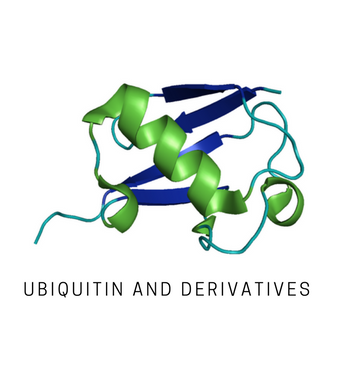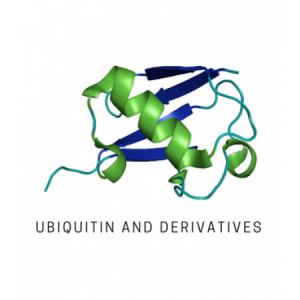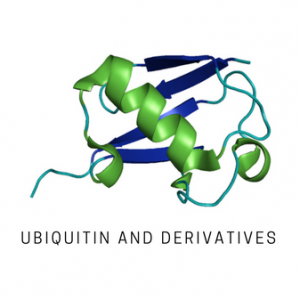Specifications
M1-linked ubiquitination is traditionally associated with regulation of NFĸB and IFN signaling. M1 Tetra-Ubiquitin is a tetrameric chain of wild-type ubiquitin. It is expressed as a linear chain wherein monomers are linked through N-terminal methionines and C-terminal glycines. Increasing evidence suggests that polyUb chains joined through linear peptide bonds between the C-terminus of a ubiquitin and the N-terminus of another play important functional roles. The enzyme machinery responsible for the generation of linear polyUb chains has been termed LUBAC, consisting of HOIL-1L and HOIP. Chains of these type have been determined to have an open conformation, similar to polyUb K63, but with very distinct functional properties. Linear polyUb chains are cleaved by the deubiquitylases CYLD, USP5 (IsoT), USP2 and have been shown to bind to many UBDs including NEMO and Trabin-n (3xnzf).
This is recombinant tetraubiquitin expressed as a linear chain. Amide linkages join the N- and C-terminus of each ubiquitin molecule to each other. This molecule is HIS-tagged at the N-terminus of the most distal ubiquitin. With the M1 Linear Tetra Ubiquitin made, we then biotinylate it once on one available site on the ubiquitin chain. This biotin then acts as a means of detection via streptavidin or vidin. The applications are numerous from Western Blots to ELISAs. Testing can vary based off of intended application (EX: DUB activity/specificity).
Info
| Species | Human |
| Source | E. coli |
| Tag | Biotin |
| Molecular Weight | 35,146.5 Da |
| Quantity | Variable |
| Concentration | Variable |
| Formulation | 20 mM Tris pH 7.5, 150 mM NaCl |
| Storage | -80°C, avoid freeze/thaw cycles |




Reviews
There are no reviews yet.